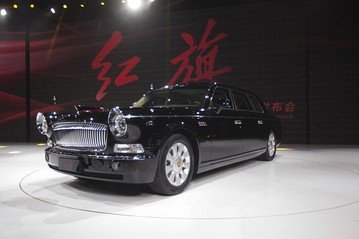China’s New Diplomatic Weapon: Red Flag Luxury Limos

On Friday, Beijing donated 20 Chinese-made Hongqi, or Red Flag, sedans worth around $2.3 million, to the Pacific nation of Fiji.
At a ceremony in Suva, Fijian Prime Minister Voreqe Bainimarama described the gift as “generous” and “timely”— the cars will go straight to work next week as the country hosts a high-level meeting of G77 group of developing nations.
Fiji and China have been on friendly terms since 1975, when Fiji became the first South Pacific island nation to forge diplomatic ties with Beijing.
The Hongqi is no stranger to politics, either.
First produced in 1958, the luxury sedan was synonymous with Chinese power trips in the Mao era and the early reform years, used to transport top Chinese politicians and foreign dignitaries visiting China.
When former Chinese premier Zhou Enlai needed a nap, his own personal Hongqi had a switch he could flick that allowed him to stretch out in the back, an engineer who worked on the original design told state broadcaster China Central Television in an interview last year.
In the wake of global oil shocks manufacturer China FAW Group Corp ceased manufacture of the Hongqi in 1981. Production re-started in 1995.
Now FAW is priming Hongqi’s latest H7 model for a slice of China’s market for luxury cars.
FAW’s hopes for the old brand’s revival are high. The Hongqi H7 means the monopolization by foreigners of the high-end auto market in China could “be smashed at one stroke,” a statement on FAW’s website reads.
Yet sales thus far have been modest amid persistent doubts over quality and after-sales service. According to data from consultancy LMC Automotive, 460 Hongqi H7s were sold between the time it rolled off the production line in middle of last year and the end of March.
Nouvelles connexes


